Composer Wayne Horvitz adapts the large-ensemble ‘conduction’ method of musical innovator Butch Morris to create vital new jazz. Listen for traces of Ellington and Mingus in these vividly recorded performances.
– Mark Werlin (HRAudio, All About Jazz, NativeDSD Music)
The Royal Room Collective Music Ensemble started off as a fairly loose collective of Wayne Horvitz’s favorite Seattle improvisers playing his music at Seattle’s Royal Room, the club he co-owns and books.
The essential ingredient is Wayne’s adaptation of Butch Morris’s Conduction system for free improvisers into a language for spontaneously arranging and reconstructing his music on the fly, using numbers for a piece’s written motifs, and other hand signals (to individuals or shifting groupings) to indicate how to treat their material. While maintaining the spontaneity of small group performance, he uses it to structure complexities only possible with a larger ensemble:
As Wayne relates, “It was exciting to me in that it could be very free and malleable at some points but at other times could also work up a riff-based music similar to the music of Charles Mingus or even Count Basie. Harmonically it was very gratifying to constantly be re-inventing the arrangements. Even when the players misinterpreted hand signals things would happen that could be taken advantage of and developed.”
Wayne of course knew Butch Morris well in New York in the 80s and considers him an important mentor: “Butch was using the improvisers’ language set to create totally new music, it was really a fairly radical approach. Not so with what I am doing. In some ways I am doing now what Butch started doing and then abandoned for his more ‘pure conduction’ approach. In the 80s David Murray had a big band that Butch would conduct, and he would work with David’s charts, and break things up with those charts as a starting point. Later we made a CD for New World records that took his own tunes and used a similar approach. And the fact that I was involved in many if not most of Zorn’s game pieces at the same time that I was first working with Butch certainly helped me develop an alternative approach to creating structure live.” On this record the two Redux pieces are closest to pure conduction, “except I asked the musicians to have the score with the motifs from a specific tune available, but we did not play the arrangement per se.”
As for the arrangements, one might occasionally flash on Ellington, Gil Evans or Gerry Mulligan in terms of voicings, and the way the elements are played off against each other plus the marshalled energies of the performance could bring to mind Anthony Braxton, George Lewis, or Misha Mengelberg: “All of those are artists whose music I love. Only after I started putting this band together did I really start to hear a similarity to someone else – Mingus. I love Mingus’s music but I never considered him an ‘essential’ influence the way I do say Cecil Taylor or The Art Ensemble of Chicago, but it kind of makes sense. Mingus’s up-tempo tunes often took fairly simple riffs and ‘re-purposed’ them in all kinds of ways. And then he loved ballads, as do I.”
Wayne Horvitz, Conductor & Composer
The Royal Room Collective Music Ensemble
Trumpets: Al Keith, Samantha Boshnack, Steve O’Brien
Trombones: Naomi Siegel, Jacob Herring, Willem de Koch
Clarinet: Beth Fleenor
Soprano Saxophone: Kate Olson
Alto Saxophone: Ivan Arteaga
Tenor Saxophone: Skerik
Baritone Saxophone: Greg Sinibaldi
Piano: Ryan Burns
Bass: Geoff Harper
Drums: Eric Eagle
Tracklist
Please note that the below previews are loaded as 44.1 kHz / 16 bit.Total time: 01:24:02
Additional information
| Label | |
|---|---|
| SKU | PWSGL16092 |
| Qualities | DSD 512 fs, DSD 256 fs, DSD 128 fs, DSD 64 fs, DXD 24 Bit, WAV 88.2 kHz, FLAC 192 kHz, FLAC 96 kHz |
| Channels | |
| Artists | |
| Composers | |
| Genres | |
| Instruments | Bass, Clarinet, Jazz Orchestra, Saxophone, Trombone, Drums, Piano, Trumpet |
| Recording Engineer | Andy Meyer |
| Recording Location | Recorded at London Bridge Studios, Seattle, February 26-27, 2014. |
| Mixing & Mastering | Mixed by Brian Montgomery. Mastered by Graemme Brown at Zen Mastering. |
| Original Recording Format | |
| Release Date | May 31, 2024 |
Press reviews
Gapplegate Music Review
Wayne Horvitz has shown himself, as keyboardist-pianist and composer, one of the most versatile jazzmen active today. His avant electric funk has been innovative and important part of his style. But equally so his acoustic music. We get a very impressive example of the latter with his big band, known as the Royal Room Collective Music Ensemble, and their album At the Reception (Song Lines 1609-2). It’s a game gathering of good players on the Seattle scene, some 14 of them that include worthy solo talent. They are well-rehearsed and very capable. But the compositions and arrangements by Horvitz are the main attraction. They run the gamut of styles from in-the-pocket swingers to post-Evans tone poems to adventurous avant fare. There is even something that sounds either like a Jewish or Italian (or both) folk dance, which has a sense of humor. There is a great deal of good music here, 74 minutes worth. Absorbing it takes some time. Once you do you go away from this with a real appreciation of Horvitz’s great skill and talent. This is big band music that does not sound quite like anything else. New music, truly. The truth is in the telling, so I strongly suggest you get this one and listen closely. It is a triumph!
Bird is the Worm
Fantastic set from Horvitz’s expanded ensemble, the Royal Room Collective Music Ensemble, performing Horvitz compositions that are re-arranged on the fly… a sort of improvisation by Madlib approach, where anything goes within a loose, but sturdy structure. Horvitz classics like “A Walk in the Rain,” “Sweeter Than the Day,” and “Prepaid Funeral” retain his curious songwriting style while allowing a traditional big band sound to bloom from its seed. The impact Horvitz has had on the Pacific-Northwest scene since his move from NYC can be heard on a number of recordings of the new generation of local jazz musicians… this recording from this ensemble only further cements that claim in place. Highly Recommended.
Jazz Word
At the Reception has a divergent aim and result. Almost 75 minutes of music divided into two sets, Horvitz’s venture into conduction is designed to open up the tunes’ structure, giving the 14-member Royal Room Collective Music Ensemble more freedom to improvise. Like the music for 55, which involves some of the same musicians, the concept is only partially realized. Perhaps it’s the clean air and open spaces of Washington State that inured the players from urban tension, but at points the interpretations appear too perfect and lacking spontaneity. Every timbre and every voicing sounds locked-in, as if the ensemble is reading the score. Perhaps this demonstrates Horvitz’s grasp of Morris’ strategy to do away with jarring transitions from notated to improvised sequences. But this overly cautious approach almost negates any potential for musical free-falling, the thrilling tightrope-walking-without-a-net that the composer experienced playing in Morris’ groups as well as participating in Zorn’s game pieces. There are immaculate thematic elaborations by some soloists, but where are grittiness and passion that could make the tracks so much more?
Audiophile Audition
Despite the freedom offered to the musicians, nothing ever sounds chaotic. The multiple horns (four trumpets, three trombones, four saxophones and clarinet) and rhythm instruments (bass, piano, drums) coalesce and combine in a manner which brings to mind Charles Mingus or Duke Ellington, or some of John Zorn’s catalytic tactics, but is progressively apart from those antecedents. Those interested in how this works visually can view an online live excerpt of “Disingenuous Firefight,” one of 13 cuts from At the Reception. …
A quick commendation must be given to Andy Meyer, who recorded this music at Seattle’s London Bridge Studios; Brian Montgomery, who mixed the material; and Graemme Brown, who mastered. Each person should get kudos for their aural design or audio work. The communal band sound is excellent as well as all of the individual instrumentalists, from serene clarinet to soaring saxes…
AllAboutJazz
…Wayne Horvitz’s music remains multifaceted and transportable, from the hinterlands of avant classical to down-home folksy charm, from small group getups to large-ensemble blowouts. All of it, not necessarily unforgettable but most likely memorable, seemingly coached along by someone untethered to form, a sponge for inspiration and recreation, a spirit unabashedly unwilling to stop. The main thing, I guess, is that there’s nobody else out there I hear even attempting to cover some kind of similar range, and do it so convincingly.
Only logged in customers who have purchased this product may leave a review.

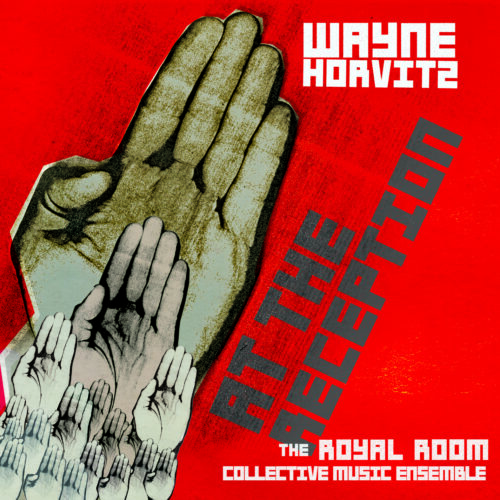
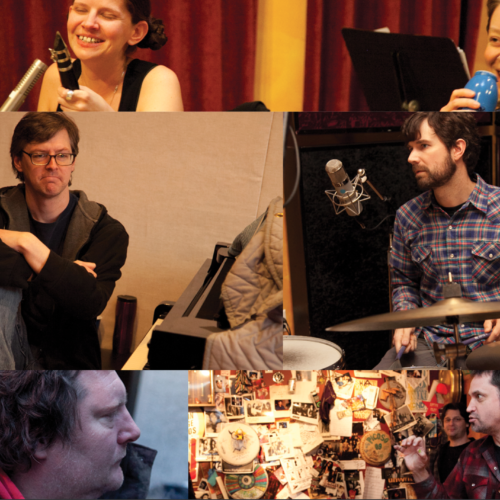
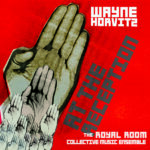
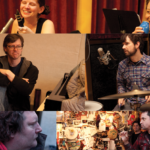
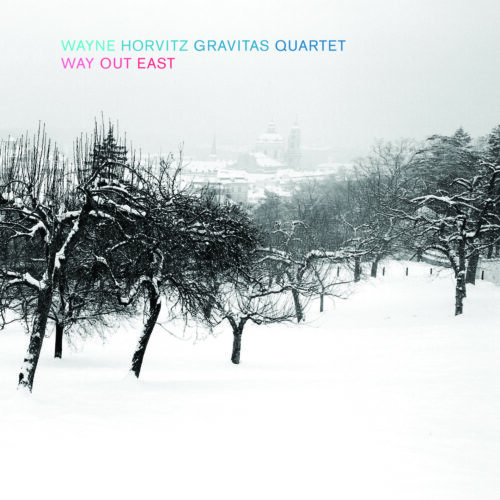
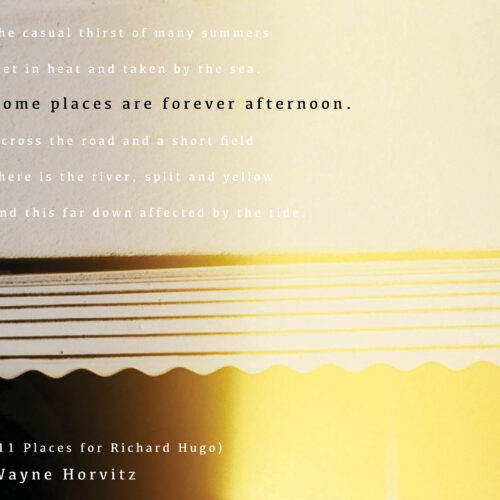
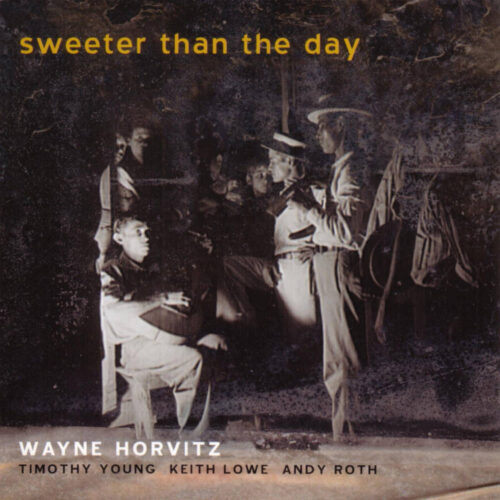
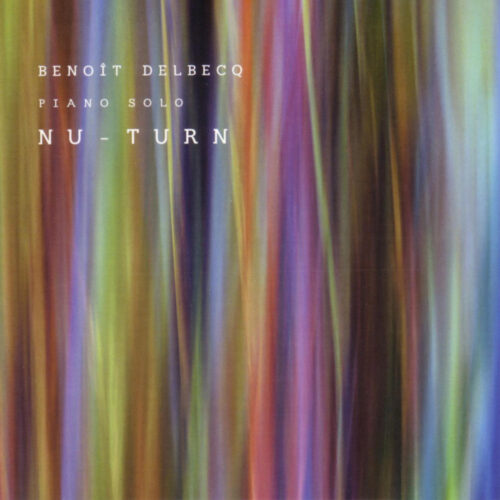

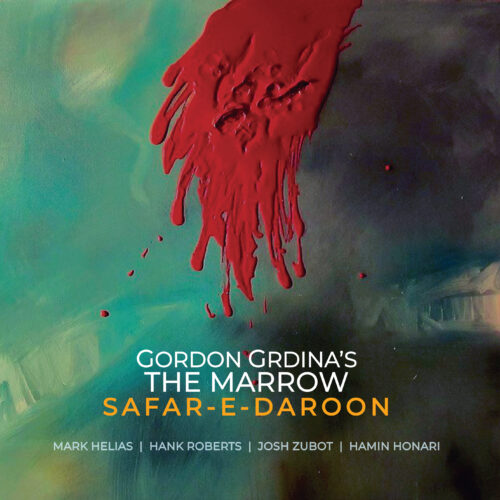
Reviews
There are no reviews yet.